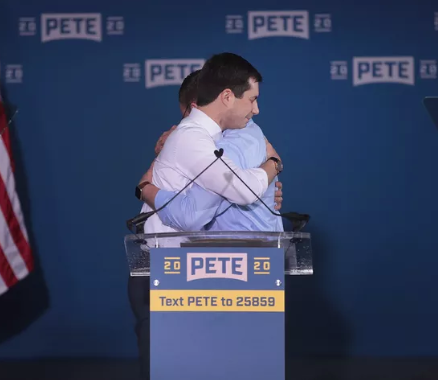
There was a word missing from the speech Pete Buttigieg gave in South Bend, Indiana, announcing his presidential campaign. It’s a word you heard twice in Bernie Sanders’s and Beto O’Rourke’s announcement speeches, nine times in Cory Booker’s, 21 times in Kirsten Gillibrand’s, 23 times in Kamala Harris’s, and 25 times in Elizabeth Warren’s.
That word? “Fight.”
Instead, Buttigieg returned to a word those speeches shied away from, a word whose relative absence from the Democratic primary is all the stranger given its potency in past Democratic campaigns.
That word? “Hope,” which Buttigieg said eight times, Gillibrand said three times, O’Rourke uttered once, and Sanders, Harris, Warren, and Booker avoided entirely.
Bill Clinton, famously, was “the man from Hope.” Barack Obama ran on “hope and change.” But hope has become unfashionable in the Democratic primary. Partly, that’s because Democrats are trying to build a legacy distinct from Obama’s and are looking for language of their own. Partly that’s because the lesson many Democrats took from Sanders’s strong showing in 2016, and Donald Trump’s victory, is that an angry country is looking for fighters — and no matter how many times Hillary Clinton played “Fight Song” at rallies, a critical mass of voters didn’t think she really meant it (more on the gendered dynamics of this in a minute).
Buttigieg’s rise has been unexpected and, to be honest, a bit weird. Young mayors of midsize cities don’t typically vault ahead of talented presidential fields to poll third in Iowa and New Hampshire before they’ve even officially announced their campaigns. “Candidly, I don’t even know all the reasons why this is going so well,” Buttigieg told New York magazine.











